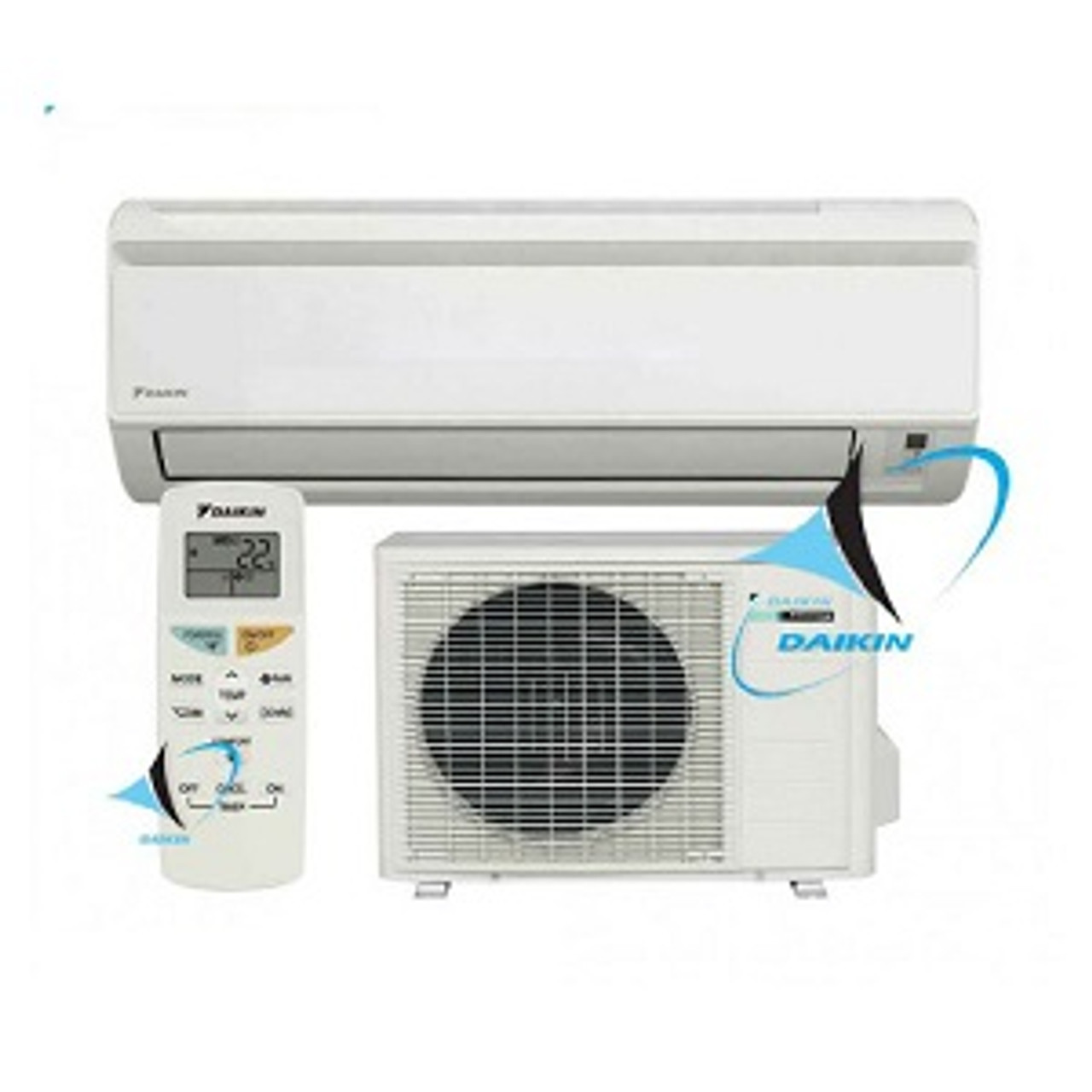Essential Factors to Consider When Choosing the Right Air Conditioner for Your Home
As the weather becomes warmer, many of us start to think about getting an air conditioner for our homes. But with so many different types and models on the market, it can be hard to know which one is right for you. Selecting the right air conditioner for your home is a decision that can significantly impact your indoor comfort and energy efficiency. With a myriad of options available in the market, it's crucial to consider several essential factors to ensure you make an informed choice. From cooling capacity and energy efficiency to installation requirements and maintenance, understanding these factors will help you choose an air conditioner that suits your specific needs and enhances your home's overall comfort. In this article, we will explore the key factors you should consider when selecting the right air conditioner for your home, providing you with valuable insights to make a well-informed decision that ensures optimal cooling performance and long-term satisfaction.
When it comes to selecting the right air conditioner for your home, several factors should be taken into consideration. Understanding these factors will help you make an informed decision that meets your cooling needs and ensures long-term satisfaction. Some of the key factors to consider include the cooling capacity, energy efficiency, installation requirements, maintenance and servicing, noise level, cost considerations, additional features and options, environmental impact, and user reviews and recommendations.
By carefully evaluating these factors and their relevance to your specific situation, you can select an air conditioner that not only provides efficient cooling but also aligns with your budget, lifestyle, and environmental considerations. In the following sections, we will delve into each of these factors in more detail to provide you with the necessary information to make a well-informed decision when choosing the right air conditioner for your home.
Air-conditioner FT15JXV1 1.5 HP Basic split(R22 GAS) Daikin
Consider The Size of The Unit
Once you’ve determined your basic needs for an air conditioner, the next step is to consider the size of the unit. This is especially important if you have a large space to cool, as having an air conditioner that’s too small will not be able to effectively cool the space.
In order to make sure you get the right size of air conditioner, you’ll need to measure the space you need to cool. This includes the length, width, and height of the area you want to cool. You’ll also need to know the height from floor to ceiling. The size of the space will determine the BTU (British Thermal Unit) output of the air conditioner you need.
BTU is a measure of the capacity of the air conditioner, so you’ll want to make sure you choose one with enough BTUs to cool your space efficiently. For example, a medium-sized room of 200 to 350 square feet should have an air conditioner with at least 8,000 – 10,000 BTU. A small office of 100 to 150 square feet should have at least 5,000 – 6,000 BTU. And if you have a large open space like a living room of 400 to 600 square feet, you’ll need an air conditioner with at least 12,000 – 16,000 BTU.
Air Conditioner FHC40EXV1 4HP Cassette Daikin
Consider the Climate
The climate of your area plays an important role in choosing the right air conditioner for your home. In areas with a warm climate, you’ll need an air conditioner with a higher BTU to effectively cool your home. In areas with a cooler climate, you may be able to get away with a smaller, lower BTU air conditioner.
To determine the climate of your area, you can use the U.S. Department of Energy’s climate zone map. This map divides the U.S. into five climate zones – hot-humid, hot-dry, warm-humid, moderate, and cool. Depending on what climate zone your location falls under, you can choose an air conditioner with the right BTU output to effectively cool your home.
Air Conditioner FTNV50BV1 2HP Daikin
Determine the Level of Energy Efficiency You Desire
Once you’ve determined the climate of your area and have an idea of the BTU output you’ll need, you should determine the level of energy efficiency you desire. Air conditioners come in multiple levels of energy efficiency, such as 10 SEER, 11 SEER, and 12 SEER, and so on. The higher the SEER rating, the more efficient the air conditioner is.
High-efficiency air conditioners can save you money in the long run, as they use less energy and can potentially lower your monthly energy bills. A 12 SEER air conditioner can run up to 20-30% more efficiently than a 10 SEER one.
While opting for an efficient air conditioner can be beneficial, there can be associated costs. High-efficiency air conditioners are typically more expensive than lower efficiency models. You’ll need to determine your budget and decide if the extra costs of an efficient system are worth the investment.
Determine the Noise Level
Noise is an important consideration when it comes to air conditioners. After all, you don’t want a device that makes you cringe every time it starts up! Air conditioners come in various sound levels, typically ranging from 55 to 75 decibels (dB).
When choosing the right air conditioner for your home, you should determine the noise level that you are comfortable with. If the unit is installed indoors, a lower noise level is preferable. Alternately, if the unit is installed outdoors, the sound won’t be as intrusive, and therefore a higher noise level may be suitable.
The best way to determine the noise level of an air conditioner is to read online reviews about the model you are interested in and see if anyone has commented on the noise level. You can also try to find an in-store display or request a demonstration to get an idea of the sound level for yourself.
Air-conditioner FT15JXV1 1.5 HP Basic split(R22 GAS) Daikin
Installation Services
Installing a new air conditioner in your home is not a task to take lightly. Without the help of professional installers, you might risk installing the unit incorrectly or even damaging your home. For this reason, it is important to factor in installation costs and services when choosing the right air conditioner for your home.
Look for providers of air conditioners that offer installation services and determine how much these services will cost. Some providers might offer installation packages that include a standard fee for installation, while others might pay for parts and labor. It’s also worthwhile to read customer reviews pertaining to the installers and their quality of work, to make sure you won’t be sacrificing quality for price.
When researching installation services, make sure to ask the provider any questions you have on the process and quality of work before committing. This can include clarification on what type of materials will be used and what specific steps will be taken to install your air conditioner. Taking the time to ask these questions now can save you a lot of time and stress in the future.

Air Conditioner Duct AC FDM25CXV1 Daikin
Warranties and service plans
When it comes to choosing the right air conditioner for your home, warranties and service plans are also important factors to consider. Whenever possible, look for units that offer long-term warranties, as well as service plans to ensure that the unit is running properly and efficiently.
Look for warranties and services plans that cover the installation, replacement, and repair of components. Also try to ensure that the warranty covers any air conditioner breakdowns, as well as any labor costs.
It’s a good idea to look for a manufacturer that honors their warranties as best as possible. Many manufacturers also offer additional assistance such as in-home assistance. This allows a professional to come to your house, diagnose the issue, and apply the applicable warranty or service plan policy.
Making an informed decision about which air conditioner to invest in for your home is now easier than ever. Taking the time to research the different brands, models, features, installation services, warranties and service plans will ensure you are getting the most for your money and making the best decision for your home.
Conclusion
Air conditioners play an important role in the comfort of a home. They provide much-needed relief from intense heat and humidity in both climates. When it comes to choosing the right air conditioner for your home, there are a number of factors to consider, such as size, efficiency, features, installation, warranties, and service plans.
By taking the time to understand the different air conditioner brands, models, features, installation services, warranties, and service plans, you can make an informed decision about which unit best suits your needs and budget.
Contact Tikweld welding supplies to make the right choice when selecting the air conditioner for your home, because it will have a significant impact on your comfort and energy savings.











